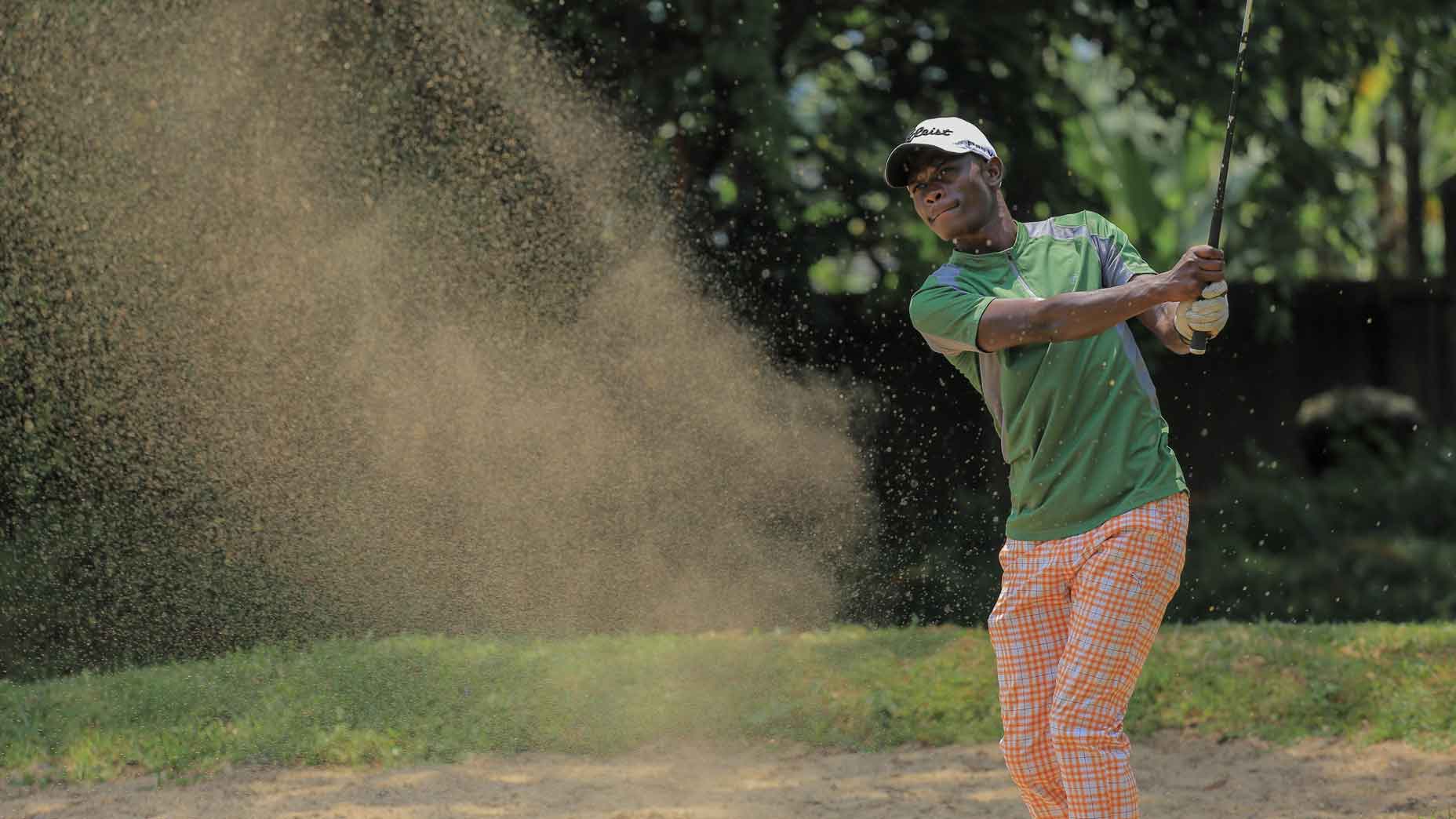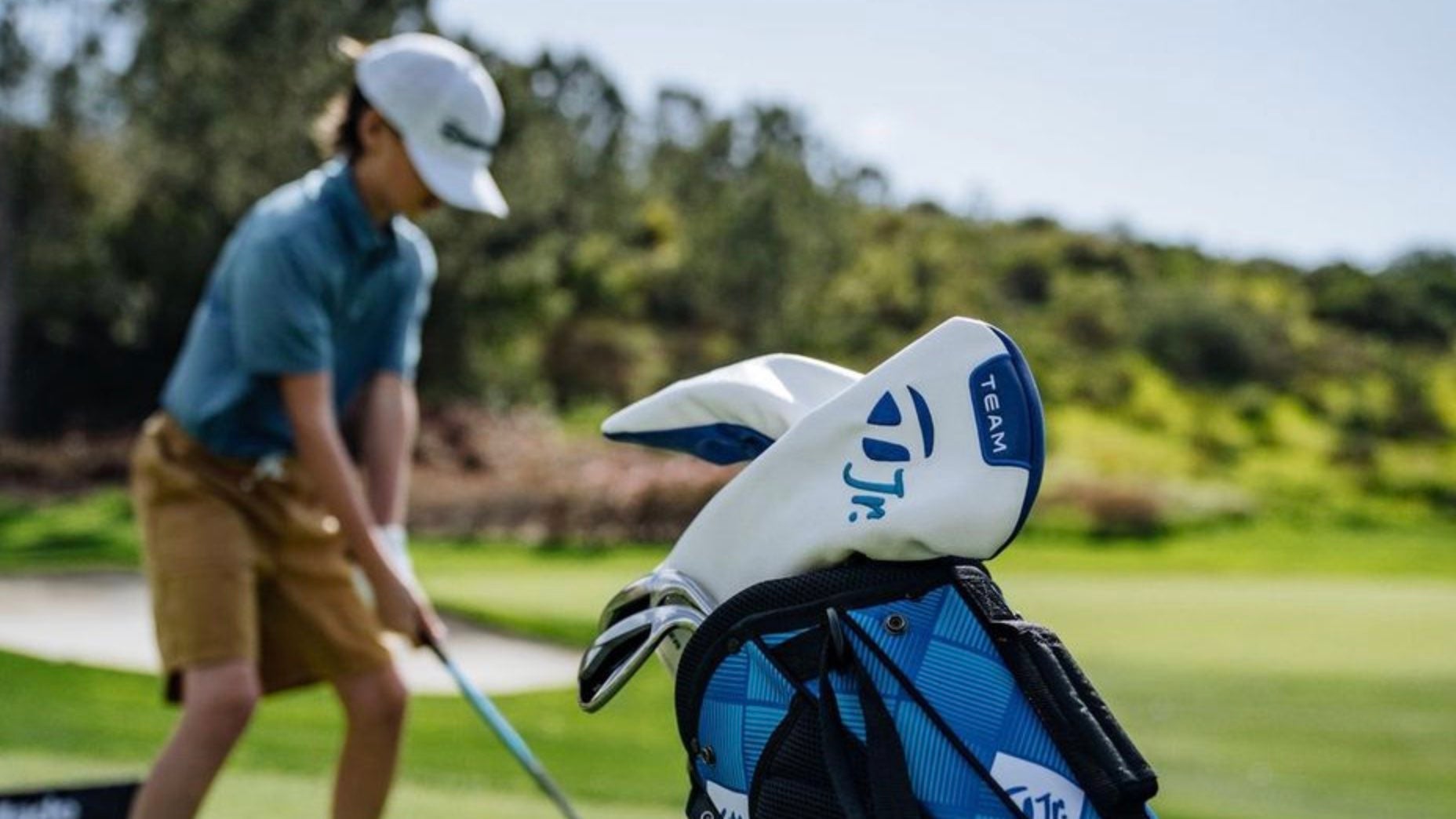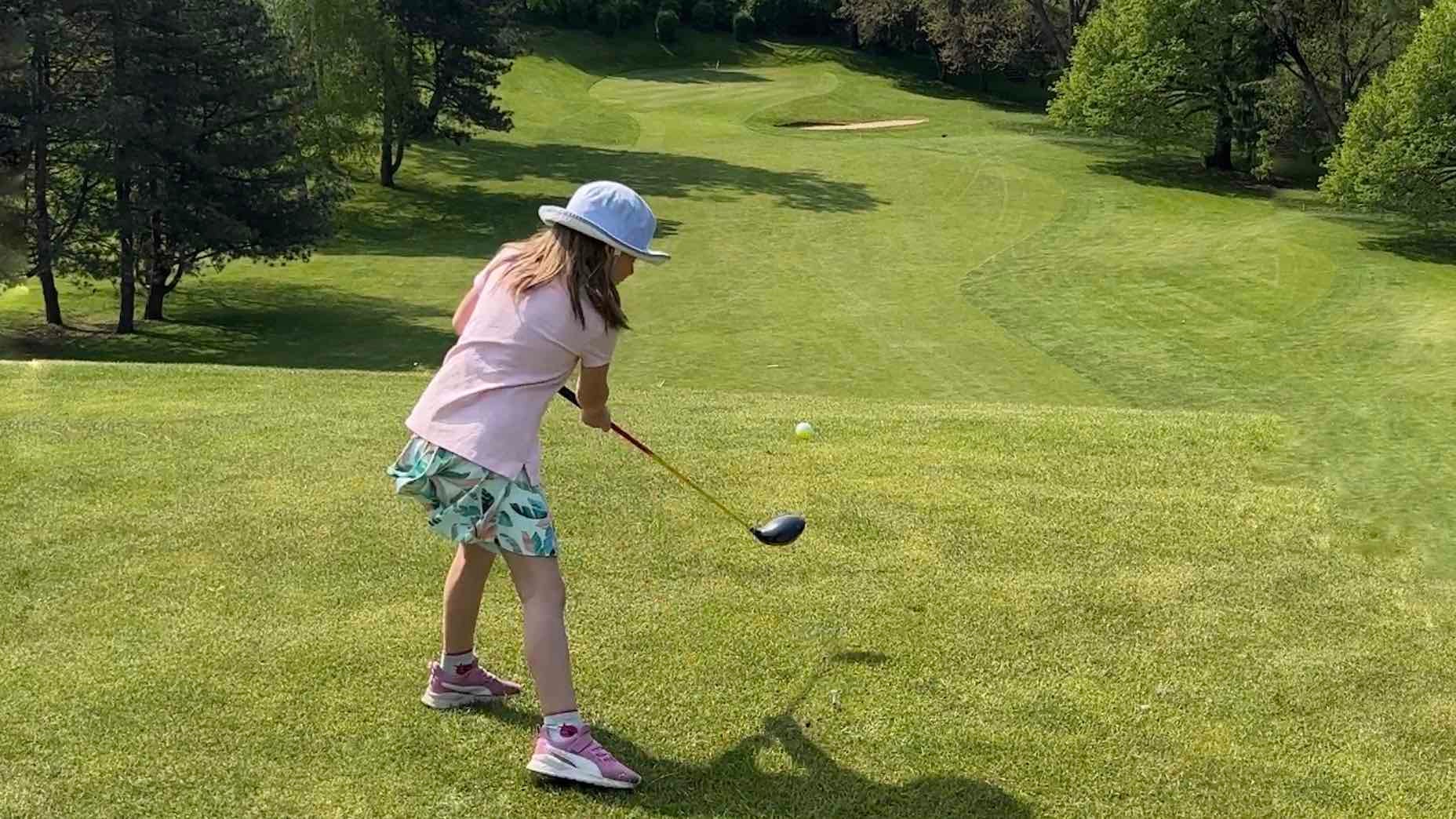He caddied for $1 a bag. Now, he’s fostering hope through the game

Isaiah Mwesige started as a caddie and became a good player before founding a junior golf academy.
Afriyea Golf Academy
When Isaiah Mwesige was 11, cancer took his mother, leaving him an orphan. His father had died eight years before.
The third-youngest of eight children, growing up in western Uganda, Isaiah moved in with an older brother and dropped out of school so that he could look for work. Agriculture was the region’s meager mainstay. Isaiah’s parents had been subsistence farmers. Their son found a different route.
“I met a boy in our area who said he had a job as a caddie,” says Isaiah, now 29. “He told me I could work as a caddie, too.”
At the time, Isaiah knew as much about golf as the average golfer knows about Uganda, an East African country of some 48 million people with a faint connection to the game. Uganda has just 16 courses. The nearest to Isaiah was Toro Golf Club, a nine-hole layout, built by British colonists in the early 1900s, in the city of Fort Portal, five miles away.
Isaiah donned his best clothes and walked to the club.
The other boy was right. Toro needed loopers. The going rate per round amounted to a dollar, which was decent money. But the bags were big and Isaiah was small. Struggling to keep up as he carried, he turned to hawking balls instead.
The 3rd hole at Toro is a mid-length par-4 that plays across a gorge covered in dense vegetation. Members call it the “Valley of Tears.” Seven days a week, from dawn to dusk, Isaiah scavenged in the thorn bushes and elephant grasses, delighting every time he found a ball, which he could sell for 50 cents apiece, but despairing at the other mislaid objects he encountered.
“Plastic bags, plastic bottles, so much garbage,” Isaiah says. “The course is a nice green place, so people would come out to sit and enjoy themselves and then leave their trash behind.”
Isaiah turned his job into double duty. For every ball he pulled from the Valley of Tears, he removed twice as many pieces of trash. Word got around, and other caddies joined his clean-up efforts. As time wore on, and Isaiah grew, so did his reputation around the club. He was now strong enough to work as a caddie, and respected enough by Toro’s membership to be enlisted as an “artisan” for the club, a liaison of sorts, tasked with local outreach.
By then, Isaiah was also playing golf, his handicap whittled into single digits. But his focus on the game came with a broad perspective. Golf had given him a lot, but he’d also had good fortune. Most kids Isaiah knew were not so lucky. The region was impoverished and scarred by a civil war that had spilled across the border from neighboring Belgian Congo. Many families had been caught up in the crossfire. Against such a backdrop, golf was not a visible — or viable — option. Initiation dues at Toro were $100, roughly what an average worker in the area might earn in a month, and that did not include recurring club fees. No wonder Toro had just 70 members. Only bigwigs could afford it.
The club, Isaiah realized, would benefit from young blood, and vice versa. But while caddying offered a path onto the course, there were only so many loops to go around.
“I knew I had to find another way to provide young boys and girls with an opportunity,” Isaiah says.
In 2019, he approached the Toro membership and floated a proposal for a junior program. Great idea, they said, then left it at that. If it was going to happen, it was on Isaiah.
An opening came when the world closed down. In mid-2020, the pandemic peaking, Isaiah aired an ad on local radio, aimed at families with cooped-up kids.

Free golf clinic!
On the appointed morning, 30 boys and girls turned up at Toro for a session led by Stephen Kasaija, the former coach of the Ugandan National golf team, who signed on as a volunteer, accepting only gas money as his compensation. When the session ended, the kids asked when it might happen again.
As established by Isaiah, the fledgling program emphasized three teachings: golf skills, life skills and environmental sustainability. Shades of the First Tee, with an eco-conscious bent.
On the afternoon of that inaugural clinic, Isaiah led the kids from the course to the city center, where they picked up litter, which in turn got picked by the national evening news.
“We were on TV,” Isaiah says. “It was, ‘Look, golf people are helping clean up the city!’”
That wasn’t the full story. And a lot has happened in the four years since. Having used his caddie savings to re-enroll in school and earn a degree in sustainable agriculture, Isaiah has launched an urban farming business, growing his own vegetables on his own tiny lot to eat at home and sell at local markets, while teaching others to do the same. That’s how he earns his living. But junior golf is how he spends his unpaid time.
His clinics have grown into a formal program, the Afriyea Golf Academy, with 13 instructors serving more than 1,000 kids in 31 schools around western Uganda. In early 2023, the academy caught the eye of the R&A, which invited Isaiah to its International Golf Conference, in Scotland, where he shared his story, made connections. Other golf-industry invitations followed. Offers of advice and services poured in. A new friend in the UK held a small fundraiser, one of the many quiet acts of kindness behind a program that depends on hand-me-down clubs, volunteer hours and a steady trickle of private donations.
Isaiah runs Afriyea on about $25,000 a year, enough to rent an office, maintain a website and pay for his instructors and the kids to get around. When shortfalls hit, he covers them himself.
“The hope is that support for us will grow because people like to associate themselves with success,” Isaiah says.
The program’s modest budget belies its impact. Many in the region have noticed its reach.
“It is a great benefit for many of our disadvantaged children,” says Alex Ruhunda, a Toro member who is also a member of Uganda’s parliament, representing the Fort Portal Municipality. “Sports, and golf, in this particular case, have that power. They open up opportunities.”
The popularity of Afriyea, Ruhunda says, has gone so far as to prompt talk in influential circles of expanding Toro golf club from 9 to 18 holes.
“It is important that we make every possible effort to tap into the talents of our young boys and girls,” he says.
Even if that happens, the game’s footprint in Uganda will still be scant. As of last count, there were some 1,400 registered golfers in the country. Small steps, though, can lead to larger strides. Earlier this year, 31-year-old Roger Rugumayo became the first Ugandan to make a cut in a DP World Tour event. He learned to play at Toro. The moment went viral, and its import wasn’t lost on Isaiah, or on any of the kids in his academy, who recently got word that one of their own, 16-year-old Rachael Natukunda, has been named to Uganda’s national women’s golf team, the first girl to earn that honor. She will represent her country in an international competition in South Africa this week.
So it goes, Isaiah says. You never know where the game might take you. His academy, meantime, continues pushing forward. The kids learn the basics, but the lessons aren’t limited to grip and stance and ball position. They take computer classes. They study soil biology. Chipping clinics give way to tree-plantings and trash cleanups. Someday, one of them might become the next Tiger Woods. Or Roger Rugumayo. Or Rachael Natukunda. Though that’s really not the point. The point is to help them realize their full potential, bettering their own lives and the world around them, too.




